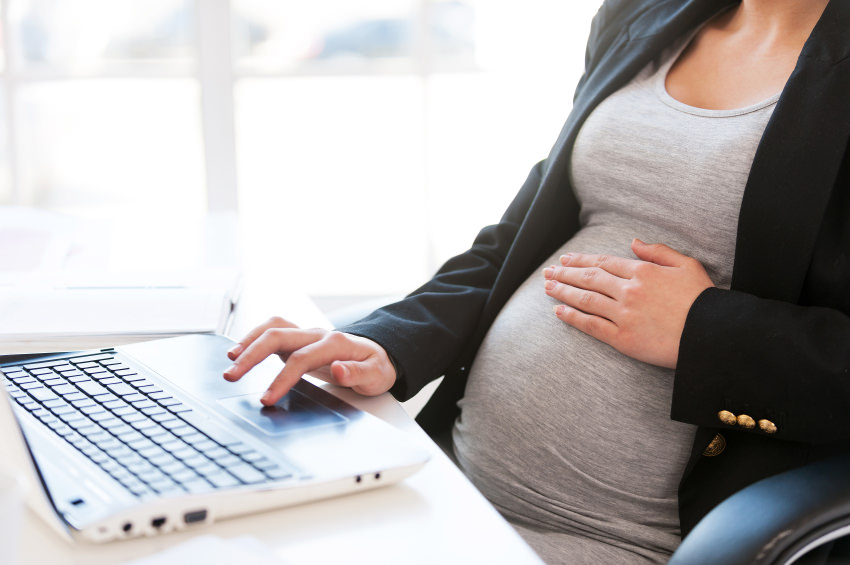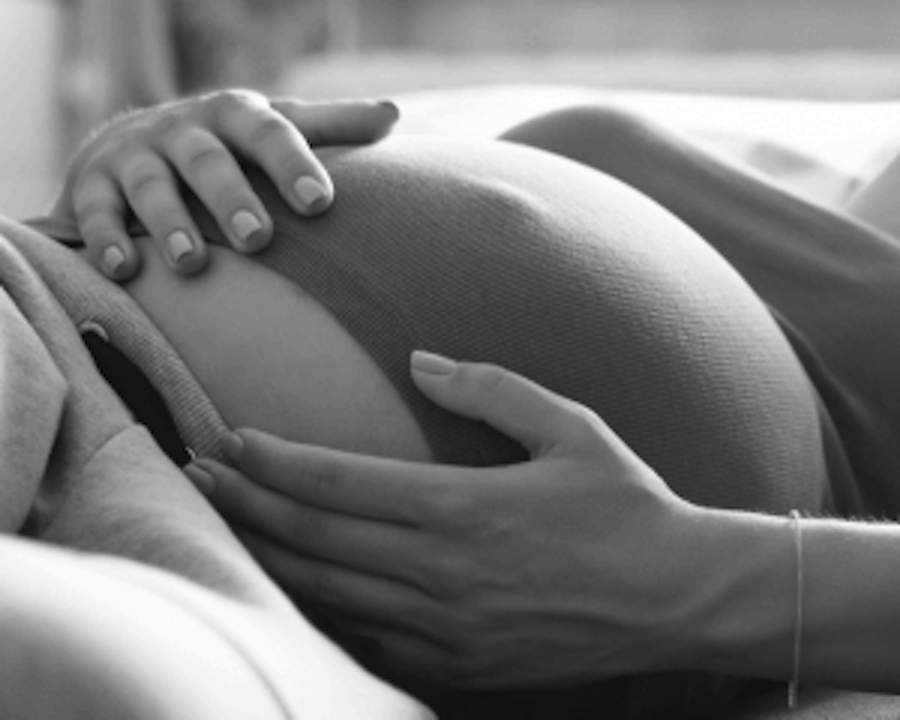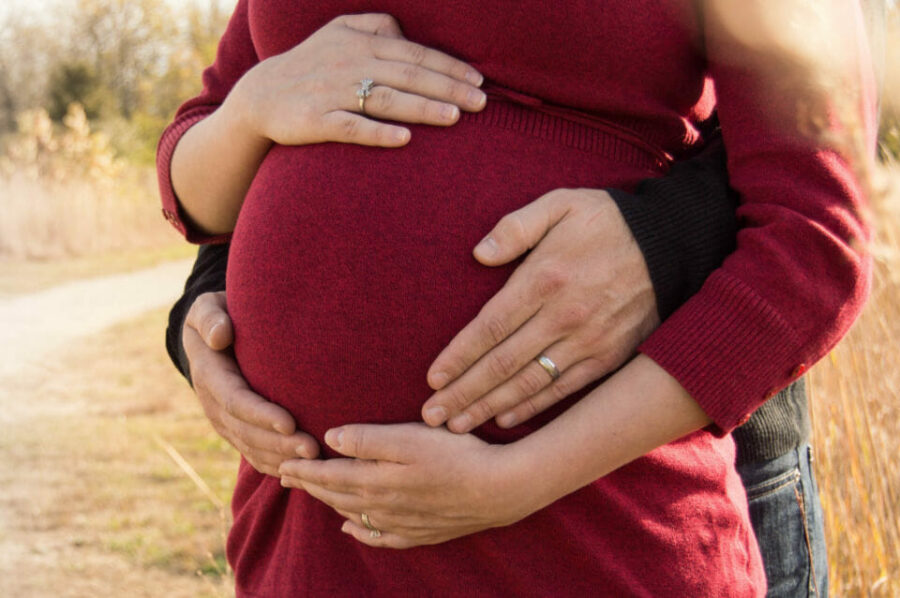Is there an ideal time to start maternity leave?
Ali Pickles, who is a registered midwife, shares some thoughts on when to plan to leave work and go on maternity leave during your healthy pregnancy.
As you know, pregnancy is a time when many decisions need to be made and choosing when to take leave work is no exception. This article will discuss some of the questions women ask about taking parental leave…

What is Maternity or Paid Parental Leave?
Maternity leave, parental or family leave, is the time a mother (or father) takes off from work for the birth or adoption of a child.
Paid maternity leave offers new parents paid time off, up to 20 weeks (from July 1st 2023) of statutory government pay, or longer if you take it as half pay in some cases. Many companies have their own policy on paid leave. In this instance, you can access both your work pay as well as the government pay, via Centrelink.
However, it is income tested. So you may not be eligible for the government pay. You can check out here.
The Federal Government have Paid Family Leave schemes that casual employees are entitled to access if they have been with their employer longer than 12 months. Speak to your work Human Resources Department at work to see what your entitlements are.
How and when should I request maternity leave?

Taking leave is dependent on the decision you make with your doctor and your employer. You do not have to tell your employer you are pregnant straight away but giving 10 weeks notice before leave begins is a good start. This allows time for your employer to fill your position and train new staff before you begin your leave. Some places require a letter from your doctor if you wish to work longer than 36 weeks. When to start leave is personal preference.
Four weeks before you plan to start your leave (or your baby is due) you should apply in writing for leave, giving notice of when you would like to start and end your leave and providing your employer with any documents he or she requires.
This might include a medical certificate from your doctor or midwife saying when your baby is due. Even if you have a premature baby or leave needs to start earlier this doesn’t affect it.
If you get to the end of your leave and wish to extend it you must give at least four weeks notice in writing to your employer. Some workplaces allow you to return to work casually before your maternity leave ends so speak to your employer for more information.
How do I decide when to start my maternity leave?

There’s no “right time” to stop working. Factors that influence decisions are your energy levels, the health of your pregnancy and the stress of your job. Sometimes your financial situation also impacts the decision when to take leave.
A lot of women start their leave between 32-36 weeks gestation. Your doctor will monitor and may put you on bed rest earlier than you plan.
Other factors to think about are the type of work you perform. Physical jobs like Ambulance/Police Officers etc. have policies that require pregnant women to perform other duties whilst pregnant.
What if my employer denies my request for unpaid maternity leave?
Legally your employer cannot deny maternity leave.
If you are entitled to parental or maternity leave it is against the law for your employer to sack you because you are planning to take that leave.
This is discrimination and you have rights. You have rights to return to the job that you had before you went on leave and if that no longer exists, to a job that is similar with the same pay.
Legalities and resources

Awards and agreements are legally binding documents, which set out the entitlements and conditions of your employment such as how much you are paid, what hours you work and what holidays and other leave you are allowed to take. Workplaces are required to make a copy of your award or agreement available to all employees.
Workplace relation laws mean that more people are likely to be employed under an Australian Workplace Agreement (AWA).
An AWA is an individual written agreement between an employee and employer and must contain a provision about unlawful employment discrimination. For advice and information about AWAs contact the Office of the Employment Advocate on 1300 366 632.
Factoring other leave

If you are entitled to annual leave or long service leave, you can also take it, instead of, or as well as, unpaid maternity leave, but, all the leave together must not add up to more than 52 weeks.
In many jobs you cannot take, for example, a combination of 52 weeks maternity leave plus four weeks annual leave – you can only take 48 weeks maternity leave plus four weeks annual leave. But again, check your award or agreement to make sure there are not better arrangements in your workplace.
Plus, you can extend the amount of leave you plan to take only once. You do this by giving your employer at least 14 days written notice of how much more leave you are planning to take.
If your employer agrees you may be able to extend the time again. You can also shorten the time of your maternity leave and come back sooner than you planned by writing to your employer giving them 14 days notice of when you are planning to return.
What happens if I have a miscarriage or stillbirth?

If you have a miscarriage or stillbirth before you had started maternity leave, your maternity leave will usually be cancelled. If you have paid sick leave you are able to take that. If you have a stillbirth within 20 weeks of the expected date of birth you can take special maternity leave. You will need to provide a medical certificate stating how long you will be unfit for work.
What’s more, you are also able to write to your employer and tell them that you would like to return to work sooner. In that case your employer must tell you a date within the next month when you can start back at work.
Having another child

Employees who have taken parental leave don’t have to work for another 12 months before they can take another period of parental leave with that same employer.
However if they have started work with a new employer they will need to work with that employer for at least 12 months before they can take parental leave.
If you have not returned to work in between babies you may not be entitled to more paid parental leave.
Parental Leave Pay

Your partner is eligible for up to two weeks statutory government pay while caring for your new child born or adopted. On 1 July 2023, Parental Leave Pay and Partner Pay are combining into one payment. It will increase from 90 days (18 weeks) to 100 days (20 weeks). It will be a combined family income limit.




